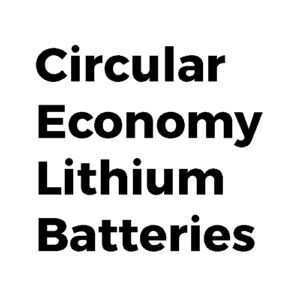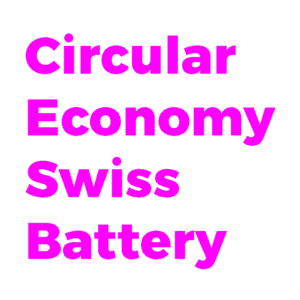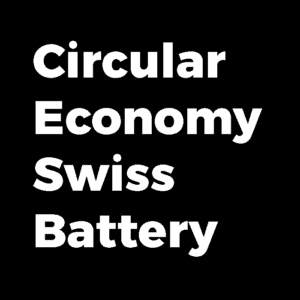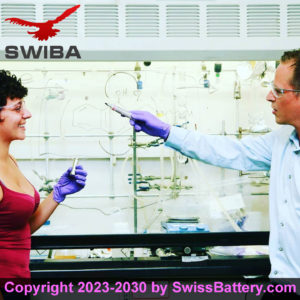



Januar, 8, 2023 - Director R&D, Swiss Battery SWIBA
Affordable and “sustainable” lithium-ion batteries are key to the development of the electric vehicle market and to a clean energy transition.
Circular economy for end-of-life lithium-ion batteries means helping to avoid the scarcity of primary raw materials.
This, while keeping environmental costs low, which is associated with mining of these raw materials.
Circular value chains could also help solve waste and disposal problems when Li-ion batteries reach the end of their life after a few years.

Such, “highly developed” and “sustainable” value chains do not yet exist and need to be developed.
Complex mixtures of materials in today’s myriad, diverse lithium-Ion battery designs hinder cost-effective recycling and thus cost-effective reuse of materials.


However, there is hope that with the up-scaling of the high-energy density lithium-ion market for electric vehicles, the circular economy will improve.
Strategy and regulatory targets for the battery industry, waste collection and recycling rates, coupled with stewardship and take-back systems are needed for a circular economy in the lithium-ion battery industry to bear fruit.
[1] Yamaguchi, S. (2022), Securing reverse supply chains for a resource efficient and circular economy for a resource efficient and circular economy, OECD, 2022
[2] Council of the EU (2022), First ’Fit for 55’ proposal agreed: the EU strengthens targets for CO2 emissions for new cars and vans. Link >>
[3] Crompton, P. 2016, Closed Loop Lithium Battery Recycling Still Not Economical
[4] Moïsé, E., Rubínová, S.“Trade policies to promote the circular economy: A case study of lithium-ion batteries”, in OECD Trade and Environment Working Papers, 2023 (1)
[5] U.S. DOE 2019, Vehicle Technologies Office’s Research Plan to Reduce, Recycle, and Recover Critical Materials in Lithium-Ion Batteries, Link >> U.S. Battery Recycling Strategy.
[6] International Energy Agency 2021, Electric Vehicles, link>> Electric Vehicles and Circular Economy
[7] Sun, S. et al. ,2021, “Management status of waste lithium-ion batteries in China and a complete closed-circuit recycling process”, Science of the Total Environment, Vol. 776, 2021, 776, 145913.
[8] McKinsey 2021, Why the automotive future is electric, 2021.
Deutsche version

Januar, 8, 2023 - Director R&D, Swiss Battery SWIBA
Erschwingliche und «nachhaltige» Lithium-Ionen-Batterien sind der Schlüssel für die Entwicklung der des Elektrofahrzeugmarktes und für eine saubere und kosteneffiziente Energiewende.
Kreislaufwirtschaft für Alt-Lithium-Ionen Batterien heisst, dazu beizutragen, die Knappheit von Primär-Rohstoffen zu vermeiden und gleichzeitig die Umweltkosten sowie, Energieverbrauch und Wasserverbrauch, niedrig zu halten.
Kreislauf-Wirtschaftliche Wertschöpfungsketten könnten auch zur Lösung von Abfall- und Entsorgungsproblemen beitragen, wenn Li-Ionen-Batterien das Ende ihrer Lebensdauer nach einigen Jahren erreichen.
Die komplexen Materialgemische in den heutigen unzählig, verschiedenen Batteriedesigns erschweren ein kosteneffektives Recycling und damit eine Wiederverwertung.
Solche, «hoch entwickelten» und «nachhaltige» Wertschöpfungsketten existieren noch
nicht für Lithium-Ionen Akkus.
Jedoch gibt es die Hoffnung, dass mit der Auf-Skalierung des Lithium-Ionen Marktes für Elektrofahrzeuge die zirkulären Wirtschaft verbessert.
Strategie und regulatorische Zielvorgaben für die Batterieindustrie, Abfallsammel- und Recyclingquoten, gekoppelt mit Stewardship- und Rücknahmesystemen sind nötig.
Nur so kann eine zirkuläre Wirtschaft in der Lithium-Ionen-Batterieindustrie Früchte tragen kann.